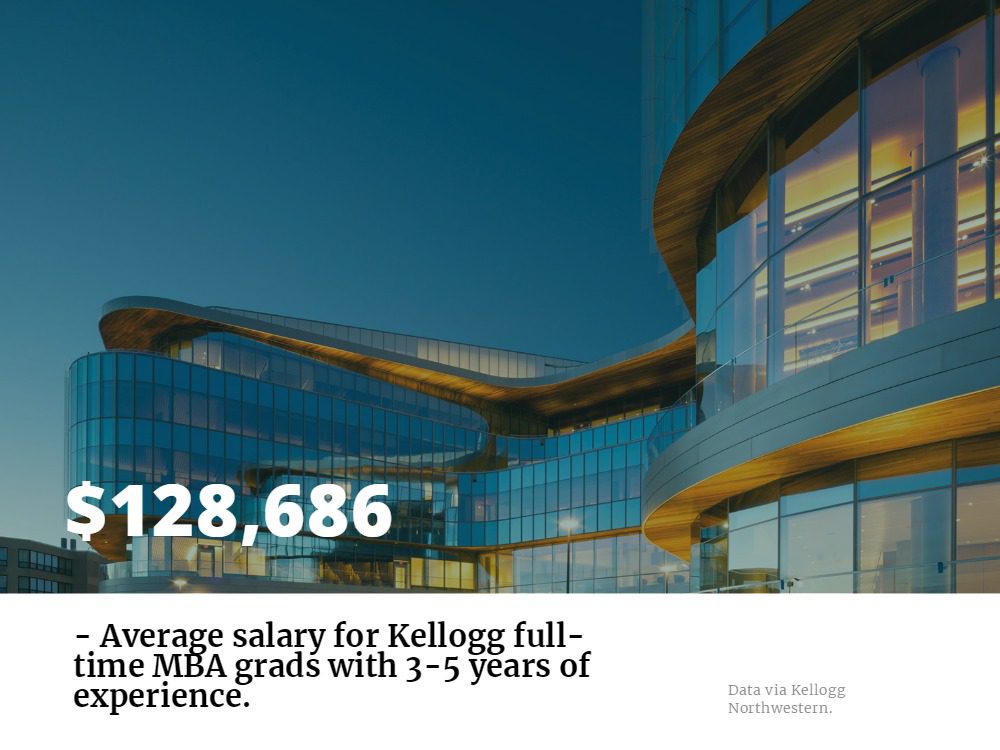USC Marshall Alum’s Startup Making its Mark in International Basketball

Brandon Smith, an alum of the USC Marshall School of Business, has changed the way international basketball teams recruit and train. His company, Global Sports Analytics (GSA), offers a proprietary, web-based software that provides different types of analytics and data to teams that compete within the international basketball community.
For players, the GSA developed a sports agency that leverages the software’s algorithm to help guarantee better contracts for clients. He recently shared his success story to his alma mater in an article published by the school.
“We use advanced metrics to help build rosters for European teams,” Smith told USC Marshall. “Basically, we identified a hole in the ecosystem, and we’re bridging the gap—matching up teams and players—so that everyone can thrive.”
Starting up GSA has taken Smith across Europe, but his journey began at Marshall. Smith gives a lot of credit to the USC faculty for helping shape his entrepreneurial mind.
“There were so many people at Marshall who influenced me,” he recalls. “David Carter and Courtney Brunious at the Sports Business Institute were instrumental in my thinking about how GSA could work. [Entrepreneurship and Viterbi professor] Andrea Belz was my mentor—we talked every week. And, of course, everyone at the Greif Center was amazing.”
“Marshall was the perfect mix: a school that lives and breathes entrepreneurship, housed within a university with a big-time athletics program,” he added.
According to the company’s projections, GSA has provided services to 11 European teams in 2017 and is on track to do so for 31 teams in 2018. What’s next for the startup? Smith says GSA has secured funding through the second quarter of 2018, and believes his company is poised for positive growth in the New Year.
“Basketball’s popularity is exploding internationally, and we’re excited to enter markets in the Middle East and South America,” he said. “Ultimately, our goal is to strengthen the global basketball community—contributing to better team play and connecting fans through a common language that can bring people together no matter where they live.”
USC Marshall Prof. Larry Harris appointed to New SEC Advisory Committee

Larry Harris, Fred V. Keenan Chair in Finance and professor of finance and business economics at the USC Marshall School of Business, has been appointed to the SEC’s Fixed Income Market Structure Advisory Committee, according to a press release from the school.
Harris, who is known as one the world’s top experts on market structure, joins a committee that will advise the SEC on the efficiency and resiliency of fixed income markets and identify opportunities for regulatory improvements. The committee’s initial focus will be on the corporate bond and municipal securities markets.
“Individual investors are highly active in fixed income markets, both directly as retail investors and indirectly through various types of funds,” said SEC Chairman Jay Clayton in a statement. “This committee will help the Commission ensure that our regulatory approach to these markets meets the needs of retail investors, as well as companies and state and local governments.”

USC Marshall Professor Larry Harris/Photo via USC
Harris is a perfect candidate to confront this issue: As former chief economist of the SEC between 2002 and 2004, he wrote the book on the topic, title “Trading and Exchanges: Market Microstructure for Practitioners,” which is called the defining textbook in the field.
While serving as the SEC chief economist, Harris also worked to ensure bond transaction prices would be public. He would study that topic once again in his 2015 paper, “Transaction Costs, Trade Throughs, and Riskless Principal Trading in Corporate Bond Markets.” In his research, Harris notes that “bonds now trade in markets very similar in structure to the markets in which NASDAQ stocks traded 30 years ago. A few small structural changes substantially decreased the costs of trading NASDAQ stocks. Similar changes can substantially reduce the $26 billion that investors now pay each year to trade bonds.”
This research led to his return to the SEC and its new Fixed Income Market Structure Advisory Committee. Along with Harris, the committee is comprised of a diverse group of outside experts, including individuals representing the views of retail and institutional investors, small and large issuers, trading venues, dealers, and self-regulatory organizations.
Here Are the Front Runners For Amazon’s New HQ2 Campus

Last week, 20 cities in the United States and Canada were informed by Amazon that their bid to host the tech giant’s second headquarters, HQ2, was still being considered. Continue reading…
Georgetown Entrepreneurship Initiative Names Leonsis Prize Finalists

Georgetown’s top student entrepreneurs are ready to show their stuff and win the cherished Leonsis Prize. The Georgetown Entrepreneurship Initiative at the Georgetown University McDonough School of Business recently announced the 2018 finalists for the Leonsis Family Entrepreneurship Prize.
Finalists will compete at the inaugural Leonsis Family Entrepreneurship Prize “Bark Tank” pitch competition event, according to the school. The Leonsis Family Entrepreneurship Prize is supported by—you guessed it—the Leonis family.
Meet the Leonisis’
Ted Leonsis is a longtime entrepreneur, investor, and founder of Monumental Sports & Entertainment, which owns and operates three professional sports teams: the NBA’s Washington Wizards, NHL’s Washington Capitals and WNBA’s Washington Mystics. Ted’s son, Zach (MBA ’15) is the senior vice president of strategic initiatives of Monumental Sports & Entertainment and general manager of Monumental Sports Network. Ted’s wife, Lynn, and daughter, Elle, the digital marketing director of SnagFilms, Inc., are also involved in the program
Meet the Finalists
Competing teams are made of current Georgetown undergraduate and graduate students, as well as alumni who within six months of graduation. Finalists were selected following a rigorous nomination, application, and review process. They compete for a slice of a $100,000 prize during the Bark Tank pitch competition, where each team share their ventures with a panel of judges, and the McDonough community.
Some of the ventures where founded by McDonough MBAs. Those finalists include:
- Edible Finance: Sunny Gupta (MBA’19) and Chris Johnson (MBA’19). Edible Finance is an Instagram-like stories platform for investments. It provides bite-sized investment tidbits via stories and videos that drive revenue generating investment actions.
- Foublie: Melissa Antal (MBA’19). Foublie is an on-demand service that connects parents with questions about nutrition, food and feeding to specialists and catered resources.
- Galapagos Strategies: Ramya Possett (MBA’17). Galapagos Strategies disrupts the IP model with upfront market analyses, innovative consulting workshops, and the creation of strategic IP that generates value.
- Hatch: JP Coakley (MBA’18) and Kelsey Lents (MBA’18). Hatch is a flexible coworking and licensed child care solution for parents in the gig economy that aligns professional and parental needs.
Visit the Georgetown McDonough website to read about the rest of the finalists. You can learn more about the Leonsis Family Entrepreneurship Prize here.
MBA on the Lake: Higher Learning in Chicago & Toronto

To have some type of natural source to balance out the cacophony of city life is crucial to a healthy mind. Not every major city is a concrete jungle, completely broken off from its former natural self or its surroundings. It might surprise city slickers the amount of wilderness opportunities that exist just outside their doorstep.
Take Toronto, for instance. Situated on the shoulder of Lake Ontario, Toronto is surrounded by plateaus, deep forest, ravines, and three rivers. While other Canadian cities may beg to differ, Toronto is the financial and cultural capital of the country. It has long been a hub for migration since the days of the Huron and Iroquois and houses the five largest financial institutions in Canada.
As the heart of American transportation and distribution, Chicago’s metropolitan reputation belies its abundance of natural splendors. Located at the toe of Lake Michigan, the Second City plays host to a wide array of green spaces—arboretums, nature centers, conservatories, and botanical gardens—as well as lakeside walking and biking paths.
Both Chicago and Toronto are world centers for higher education and research, yet offer resplendent surroundings to maintain a balanced state of mind. Both offer much more affordable living situations than New York or San Francisco and are highly underrated for their cultural appeal. Whichever you choose, you will find established, reliable education in your pursuit for the proper MBA. Last month, we analyzed the best part-time offerings in both metros, but let’s take a closer look at the full-time MBA options.
Our Favorite Toronto Full-Time MBA Programs
York University – Schulich School of Business
The Schulich School of Business at York University offers 18 MBA specializations. In addition to full-time programs, the school also accommodate working students with part-time programs that offer both day and evening courses. Students are also able to switch between full and part-time status during their tenure to suit their needs. In 2016, 89 percent of students were hired within three months of graduation by 140 companies. Graduates were employed with an average salary of $91,860 USD and an average signing bonus of $12,050.
McMaster University – DeGroote School of Business
DeGroote School of Business at McMaster University offers full-time and part-time options, as well as a three-year paid work term co-op schedule. Full-time applicants are required to have one year of full-time continuous managerial, professional, or technical work experience (this is where the Co-op plan can come in handy—work as you go). The school offers seven specializations and International study. About 94 percent of recent graduates were employed within six months (over the last two years) with an average starting salary of $71,930 USD.
Western University Canada – Ivey Business School
The Western University Canada Ivey Business School is technically located just outside of Toronto, in London, Ontario. The school offers a full-time program that gives students an opportunity to work with over 200 recruiters, with about 66 percent of graduates finding jobs in Canada. In 2017, 91 percent of the graduating class received a job offer by September 1. Average starting salaries were typically around $90,000 USD with an average signing bonus of $15,000. Other compensations averaged at $9,875.
CHECK THIS OUT: Kings of the North: Should You Get a Part-Time MBA in Chicago or Toronto?
University of Toronto – Rotman School of Management
Students in the Rotman School of Management full-time MBA program are offered 16 major options and more than 90 electives to allow for a very customizable experience. Between 2016 and 2017, 85 percent of full-time Rotman MBA students were employed within six months of graduation and 80 percent landed jobs just within three months. Average starting salaries were $85,000 USD with an average signing bonus of $13,500.
Ryerson University – Ted Rogers School of Management
MBA applicants at the Ted Rogers School of Management at Ryerson University are given two full-time options: the Global MBA or an MBA in the Management of Technology and Innovation (MBA-MTI). Their Global MBA program strives to help their graduates “understand the global context of various industries and have the knowledge necessary to drive innovation and deliver as capable and confident leaders.” The MBA-MTI helps students “gain the skills needed to manage within companies that are focused on tech and innovation.” Last year, about 80.3 percent of graduates found employment within three months of graduation and earned an average starting salary of $89,250 USD.
Our Favorite Chicago Full-Time MBA Programs
Booth School of Business – University of Chicago
The University of Chicago Booth School of Business offers what the school calls the “world’s most flexible MBA program,” and is regarded by U.S. News & World Report as the third best full-time offering in the U.S. The curriculum consists of 20 classes—nine mandatory and 11 courses tailored to personal interest—plus a Leadership Effectiveness and Development (LEAD) program. As of September 2017, an absurd 97.1 percent of graduates reported having received full-time job offers within three months, with 95.3 percent accepted offers in that time. Average starting salaries were an impressive $125,000 with an average starting bonus of $25,000.
Kellogg School of Management – Northwestern University
The Kellogg School of Management at Northwestern University offers two full-time MBA variations, either to be completed in one or two years. The school’s 2017 employment report, which can be downloaded here, detailed that 94.1 percent of graduates received job offers within three months and 90.8 percent of those grads accepted job offers. The average starting salaries for graduates with three-to-five years of work experience was an unsurprisingly lavish $128,686.

Like the Booth School of Business, when comparing Chicago and Toronto programs, financial gain is clearly an advantage for those who elect to study in the U.S. However, perhaps unsurprisingly, schools like Kellogg come with a steeper tuition cost. Applicants for the One Year full-time program should expect to pay more than $133,000 for the entire program, while those in the Rotman School of Management will have to pay around $75,000 USD.
Kellstadt Graduate School of Business – DePaul University
At the DePaul University Kellstadt Graduate School of Business, students can obtain a full-time MBA with the availability of 100 courses in 20 MBA concentrations and 17 specialized Master degrees. In 2016, within six months 89 percent of surveyed graduates were employed, 14 percent being entrepreneurial, contract or freelance. Average starting salaries were about $82,200.
Liautaud Graduate School of Business – University of Illinois at Chicago
The Liautaud Graduate School of Business at the University of Illinois at Chicago full-time MBA is a 13.5 course program, with six courses designed to deepened functional business knowledge, while the remaining 7.5 are geared towards allowing students to customize their experience towards their personal career interests. They provide twelve concentrations in their MBA program.
Mendoza College of Business – Notre Dame
The Mendoza College of Business at Notre Dame University offers two traditional full-time MBA options, which can be taken in two years, or just one in a more accelerated format. According to employment statistics recently released by the business school, about 88 percent of Two-Year full-time students were given a job offer within three months of graduating, with about 86 percent of those graduates accepting the offers. Like many of the major business schools located in the Chicago metro (although, yes, Notre Dame is technically in Indiana), full-time MBA grads enjoyed a lush base salary upon employment, with an average salary of $105,000 for the Class of 2017. Median signing bonuses also ranked in the higher end of the schools on this list, coming in at around $20,000.
The Mendoza College of Business is one of the many business schools in the U.S. that has seen a dramatic shift in terms of graduates moving into the tech industry. Three industries in particular dominated when it came to employing Mendoza MBA grads: tech, financial services, and consulting. However, a slim majority (24.7 percent) joined the tech industry, enjoying salaries slightly higher than the Mendoza average, coming in at $110,000.
Quinlan School of Business – Loyola University
The Quinlan School of Business offers full-time MBA offering is one of the most affordable high-quality Chicago options out there, with the most recent full-cost of the program coming in at $73,422; comparable to many of the aforementioned Toronto programs. And unlike many of the programs on this list, Quinlan isn’t located in some quaint suburb. Rather, the school is centered right on the historic Magnificent Mile in Chicago, fully integrated into the vibrant city.
Admissions Tip: Helping You Choose Your Business School

Deposit deadlines for Round 1 decisions are looming, many successful applicants are facing the enviable—but often agonizing—decision of choosing between programs. Though we know that those of you in this position will already be juggling an overwhelming amount of information about the schools on your short lists, we wanted to offer a few pointers to consider as you identify and evaluate the most important facts and factors in choosing between business schools.
Immerse yourself.
If you have not yet visited campus, go to the school and see what you think of the environment. Be sure to attend classes, talk with students, tour the facilities, and so on. Even if you have already made the trip, it’s a good idea to attend the school’s events for admitted students to meet your potential classmates. After all, these are the folks whose thoughts you will be hearing in class for two years and who will making up your future network.
Consider your immediate priorities.
Think about the location, size, teaching method, etc. Are you looking for a close-knit, “we’re all in this together” sort of experience, or would you prefer to attend classes and then disappear into a large city with a few classmates or old friends? Do you need the benefits of a large university to pursue coursework in a specific field? Do you crave lengthy discussions with faculty? Do you have family or a significant other who might need to consider your location? Are you strong in qualitative areas but looking to refine your skills in quantitative subjects? Is there a teaching method that might better address your weaknesses or best suit your learning style? Reflecting on the relative importance of each of these questions might help you to organize your thoughts about and the information on each program.
Look farther forward.
In addition to the experience you would have as a student, try to get a sense for the school’s track record in your target field. For example, if you hope to become a strategy consultant after school, take a look at each program’s placement statistics with the firms that are of interest to you. Talk to the career management office and find out which firms came to campus and how many offers were made. You might also try to contact alumni who work in your target field and see what they have to say about their alma mater’s strength in that area. A final option is to approach the HR departments of the firm you are likely to target and ask for their opinion of the programs on your list. This is also a nice excuse to build rapport with a potential future employer.
Think big.
Beyond the job you hope to secure immediately after school, consider the program’s regional and global brand. For example, if you are looking for work in London, you might investigate whether the school in question has an active alumni club in that city. Meanwhile, if you dream of working in Los Angeles but are debating between two programs on the East Coast, it might be important to determine which has the greater West Coast presence.
Do some quick analysis.
Two years ago, we launched MBA DecisionWire. This tool allows you to do searches on each of the schools at which you have offers, and see the decisions of your predecessors. When you have made your final decision, please head over to MBA DecisionWire, and add your entry; this will help future MBA candidates as they seek out their best MBA program options.
These are just a few general tips to get you thinking about how to make your b-school decision. It goes without saying that this is a once in a lifetime decision, so it certainly makes sense to do your homework and fully understand the strengths and weaknesses of each of your options. Rankings are a good starting point for a school search but should not be the deciding factor. Reading in-depth, independent reports on each program can be helpful, so be sure to check out the Clear Admit School Guides for their extensive cross-school comparisons on placement, class composition, campus life and more. Another thing to remember that the shoe is finally on the other foot, and the schools are now the ones marketing themselves to you. Be sure to take advantage of their offers to answer any questions you may have.
